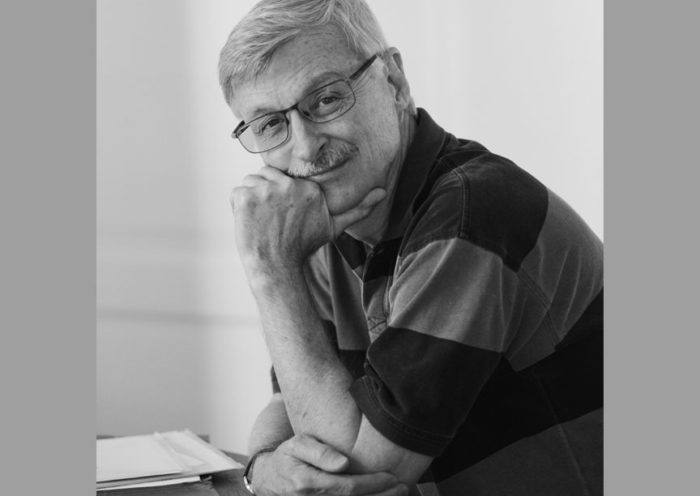The New Reality
by Tom Whalen
I told everyone the new reality would be easy to understand, there was nothing to worry about, our lives were soon to be made richer, fuller of promise, strange songs we would sing throughout the rest of our days. The new reality would eliminate self-isolation and the difficult. Hard to grasp concepts, four-dimensional chess, calculating the recession rate of stars would be a breeze. And the new reality wouldn’t play favorites, wouldn’t have citizens who would benefit more than others or look down upon those who were dumber, because no one would be dumb. The new reality would elevate us all.
Then the map of the new reality arrived, we pored over it, and I had to eat my words.
I visited the Museum of the Old Reality with its long arms of lists and thick blue veins. I walked through the Door of Ego and down the Corridor of Why with its vines trailing away into a horizonless distance. I looked in the glass cases of the Museum of Old Reality, hoping history would answer some of my questions, my doubts and anxiety about the future of life and the afterlife. In the stairwells of the museum I paused to admire the paintings of the wisdom of the pre-Socratic masters wherein donkeys and sheep grazed and slept in meadows and the sun peeped over the hills. In the closed stacks of the Museum of the Old Reality that I snuck into, I took delight in a moment of prayer. An inestimably sweet infusion of eternal praise, full of warmth and learning, hummed in my bones. Later, in the museum’s coffee shop, Cardinal Newman and I had a long, edifying chat on the cultivation of the intellect and drank several pots of black tea. Then, after I used the toilet, I stepped back into my own unchosen century, none the more prepared for the new reality.
The new reality has cracked my skull, said Edmund. The new reality has cracked my skull, too, said Yoshi. Mine, too, said Richard. It’s cracked my skull and the organ of cognition contained therein, said Gilbert. And mine, said Naguib, scratching behind his ear. And mine, and mine, and mine, and mine, and mine, and mine, said Eunice, Mechilde, Maeta, Dino, Ilse, and Gottfried.
Everywhere, as best I could tell, people walked around lamebrained by the new reality.
Meanwhile Gertrude was unhappy. I’m unhappy, she said. Which is to say I’m sad. I’m not happy about anything. I’m not happy about this book I can’t read. I’m not happy about social networking which changes its apps and offerings by the minute. I’m not happy that our children are being weaned on Jack Daniels by nanny-bots, though often I’m not not happy about it either. I’m not happy that the cost of air per ounce has increased by several creds, and if it had not been I wouldn’t be happy about that either. I’m not happy that the eternal coming of the bridegroom has been indefinitely delayed, I even expected as much. And I’m not happy that the postman has died on our stoop of COVID-919, it displeases me that he died on our stoop rather than another. And I’m not happy that Lowell’s Memoir on a Trans-Neptunian Planet is out of print, never to be printed again. And let me add that I’m not happy that you’re an idiot. I’ve always known that that was what you were, and I’ve never been happy about it. And I’m not happy that I’m not one, too. I’d love to be an idiot, but I can’t deny my smarts. And I’m not happy that I’m not larky, even if I don’t believe larks are really happy, though I bet they’re not unhappy. In a word, I’m like totally fucking miserable. In fact, I think I’m depressed.
Are you happy about the new reality? I asked.
How can I be happy or unhappy about it, she said, when I don’t know what it is?
I received a catalogue of new courses offered at the University, a catalogue on parchment with a gold trim and fish head insignia. Courses now required included New Genetics (for those born under the old genetics, the system of the lamb, the catalogue said the course was free), Basic Banking, Mysticism 101, and Twirl. New electives included Gestalt Text Messaging, Swiss Soups, Color Separation, and Life Cycles of the Ootid, a haploid cell formed by the meiotic division of a secondary oocyte, especially the ovum, as distinct from the polar bodies.
I flew to Zurich to visit Neue Zentralbibliothek and was led by an assistant down a flight of stairs into a cave-like enclosure where its mainframe was incaved.
Of what does the new reality consist? I asked it.
The mainframe sang a vaguely familiar theme I couldn’t place; its lights lit up, followed by a sound like the clacking of a typewriter, then its answer.
Of this that and the other, it said.
That’s it? I asked.
Only one question allowed, the assistant said, ushering me out.
At night we sit cross-legged on the floor in a circle, damaged and adrift in the glow of our screens.
Then the Professor spoke to us.
Fluidics, he said. Fluidics and algorithms. First, wash your face, then wash your hands, then your face, then dirty them up again. How have the questions come to be so confused? Don’t ask the darlings of this earth, darlings with lapwings for shoulders and interstitial eyes. Have you consulted the ghost in the machine? If your comments have been tabulated, investigated, digested and interfaced with the sounds of the year 1918, then slip into your harnessed minds and proceed with your development, first cutting the semantic cord. The ozone is the occult, the sky detonates. There has been a categorical error, I repeat there has been. Once wonder seized me, then faded away into introspection. I have come to you with news, a shower of tweets and hoaxes, veritable observations that the path you lead is not of your own making. If you believe there’s no good to resist, then why resist it? My heart aches, penance may afflict you, Venus has vanished. Now look at life non-optically. The mind reports its own affairs, Ryle tells us, and nothing else. Isn’t that enough? Are you sipping the spinal fluid through plastic straws? I’m lonely. I don’t feel well. You’ve been warned—then he collapsed over the podium, and a thick blue fog descended from the rafters and devoured him.
I had imagined that once we had obtained the new reality, had taken it fully in, it would replace the outworn, message-laden, utilitarian old, crises would dissolve like clouds and a new life would flourish on the planet like a garden grown wild. But I was wrong. The question is: what can we do to ward off the feeling of helplessness that comes upon us when confronted with even a portion, a script, a remnant of the new reality no one seems to understand? A qualitative analysis of imprecision might help, as might making sure the lenses on your glasses, if you have glasses, are clean. It’s possible the so-called new knowledge will help, but I have my doubts. Isn’t the new always only wrapped in the old, like a child decked out in a tuxedo? Still, I sense there’s much to be done, this side of acquiescence. Disasters to prepare for, dreams to disentangle, deaths to mourn. The orange rain, for example, that has begun to fall—orange, triangular rain the size of birdcages—might also bear examination.
BIO

Tom Whalen’s books include The President in Her Towers, Elongated Figures, Winter Coat, and Dolls. His translation of Robert Walser’s Little Snow Landscape and Other Stories is forthcoming from NYRB Classics in 2021.
Photo © Kim Graser, 2015.


















